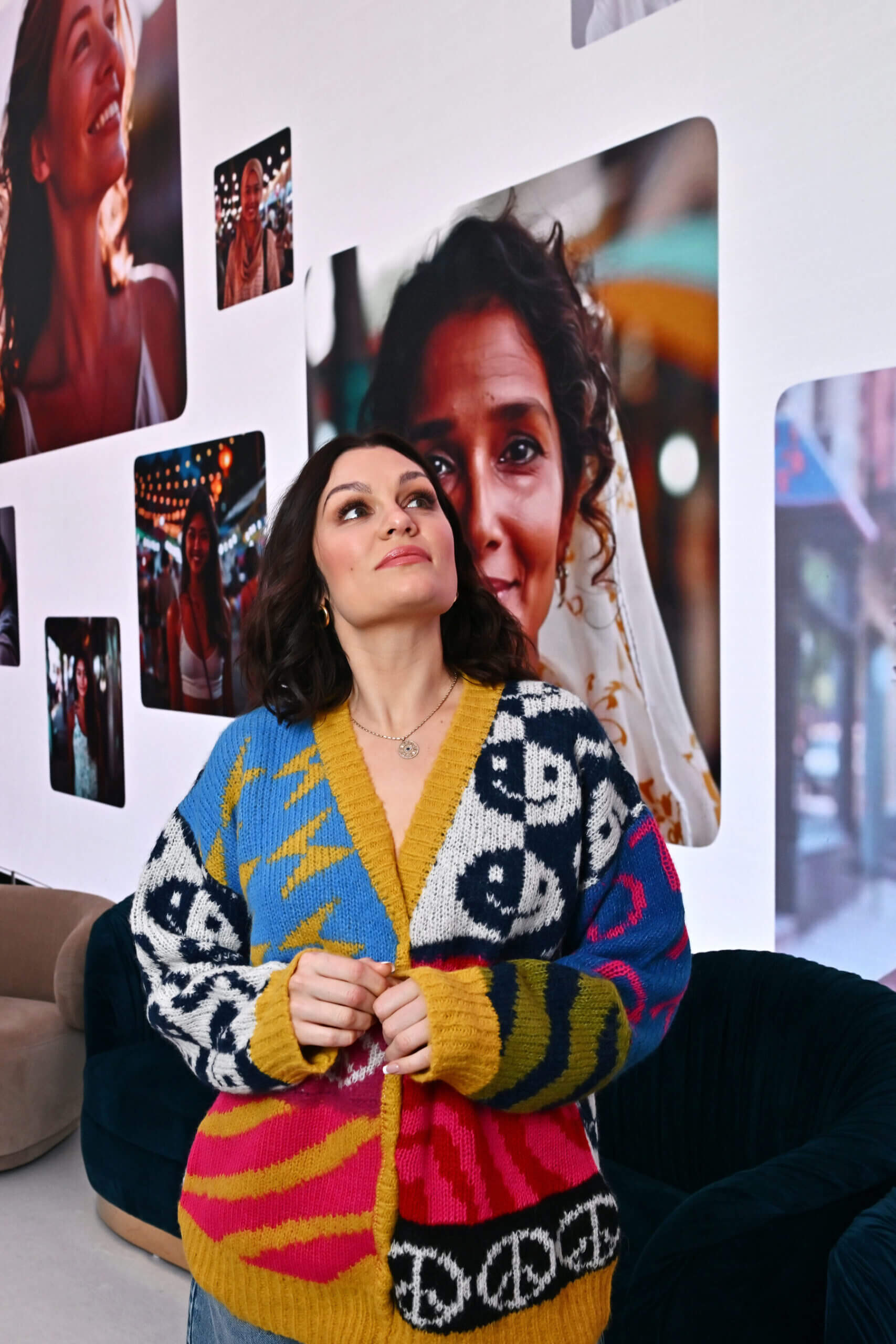90% of Content Online is projected to be A.I.-Generated by 2025

Jessie J partners with Dove to mark 20 years of the Campaign For Real Beauty and commits to keeping beauty ‘real’ by never using AI to represent real women in its ads at Outernet London on April 9, 2024 in London
“Representation is more important than ever”
Twenty years ago, Dove showed the world what beauty looks like when it’s real with the Campaign for Real Beauty. In 2004, it began with a startling truth; only 2% of women considered themselves beautiful. Since then, the Campaign for Real Beauty has challenged society, media and the beauty industry itself to change its representation of women, be transparent about digital distortion and face-up to the harmful impact unrealistic beauty standards have on women and girls.
To mark 20 years of the Campaign for Real Beauty, Dove conducted a sweeping study of beauty around the world to understand how beauty impacts women and girls today. While there has been some positive change, the state of beauty in 2024 isn’t pretty.
The outsized value society placed on appearance has intensified the pressure to be a certain type of beautiful. In its 2024 The Real State of Beauty: a global report, Dove finds 2-in-5 would give up a year of their life to achieve an ideal look or body. The study shows that while beauty ideals have diversified over the years, the checklist is growing and impossible to meet – from looking healthy (79%) to also being slim (71%), having a small waist (66%) while also being curvy (55%). 2 in 3 women believe that women today are expected to be more physically attractive than their mother’s generation was.
One of the biggest threats to the representation of real beauty is Artificial Intelligence. Today, almost 9 in 10 women and girls say they have been exposed to harmful beauty content online.
With 90% of the content online predicted to be AI-generated by 2025*, the rise of AI is a threat to women’s wellbeing: nearly half feel pressure to alter their appearance because of what they see online, even when they know it’s fake or AI generated.
“It’s no secret that across the world, including the music industry, women, girls and those who identify as non-binary, face a huge amount of pressure about the way they look. The trends are ever changing and more intense and so it’s a never-ending trap and box to fit in of what “beauty” is. It’s unhealthy, unrealistic, and relentless. Social media and emerging technology like AI are accelerating that pressure at an alarming rate. It’s terrifying what it could do to the now and the future generations of young people trying to work out life and who they are. That’s why I am honoured and passionate to be working with Dove to keep beauty real and honest to who we are. I will continue to use my voice to celebrate the diversity of all women.” Comments singer-songwriter, Jessie J, who is working in partnership with Dove.
Artificial intelligence is perpetuating unrealistic beauty standards and lacking representation further through the content it is creating. While AI has the potential to foster creativity and access to beauty, with 1 in 4 women (28%) and almost 1 in 2 girls (41%) agreeing that being able to create different versions of yourself using AI is empowering, there is still a need for greater representation and transparency.
“Despite 20 years of work to broaden definitions of beauty, women feel less confident in their own beauty than they did a decade ago,” explains Dr Phillippa Diedrichs, Research Psychologist at the Centre of Appearance Research at the University of West England and body image expert. “Representation is more important than ever. As AI technology continues to evolve, it is becoming increasingly difficult to distinguish between what is real beauty and what is manufactured by AI.”
Today, women and girls overwhelmingly agree that real beauty means being authentic, who you are, and embracing flaws.
Dove will accelerate its efforts to champion transparency and diversity and take action to shatter beauty stereotypes in new and emerging media. Dove is renewing its vows to protect real beauty – committing to never using AI to represent real women in its ads.
To help set new digital standards of representation, Dove will create the Real Beauty Prompt Guidelines, easy to use guidance for everyone on how to create images that are representative of Real Beauty on the most popular generative AI programs.
“At Dove, we seek a future in which women get to decide and declare what real beauty looks like – not algorithms. As we navigate the opportunities and challenges that come with new and emerging technology, we remain committed to protect, celebrate, and champion Real Beauty. Pledging to never use AI in our communications is just one step. We will not stop until beauty is a source of happiness, not anxiety, for every woman and girl,” explains Alessandro Manfredi, Chief Marketing Officer, Dove
Dove’s new campaign, the Code, reflects the impact of AI on beauty and demonstrates the impact real beauty has made to change beauty for the better, 20 years and counting.
The work Dove began in 2004 is far from over. Dove will never stop championing better representation, taking action to break beauty stereotypes, and standing up for power of Real Beauty. We can’t drive change alone.
Together, let’s change beauty.
